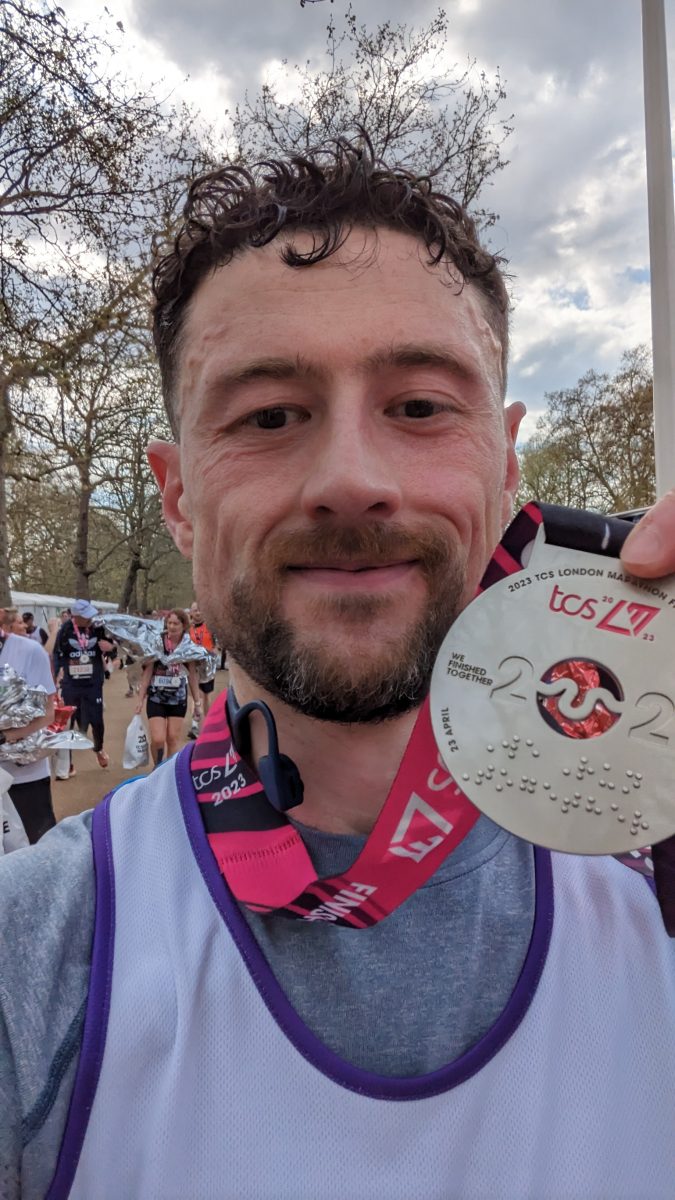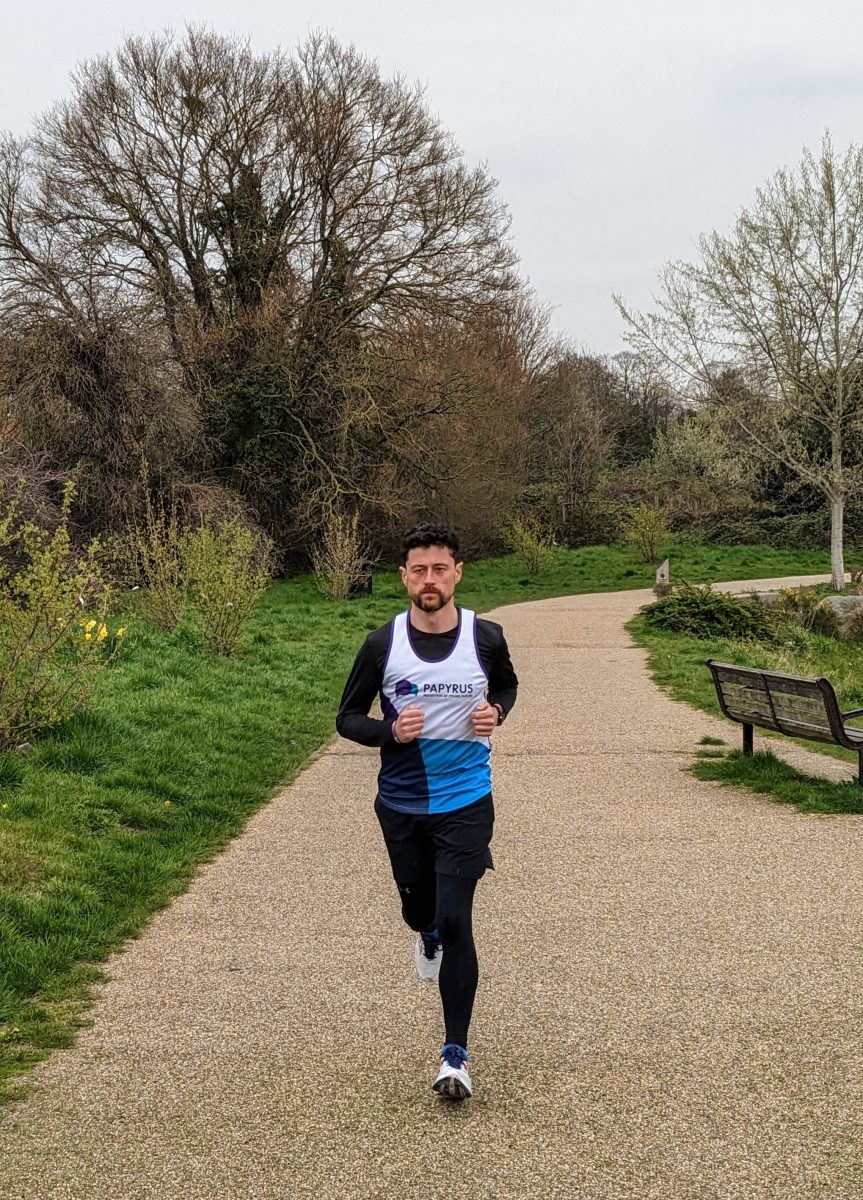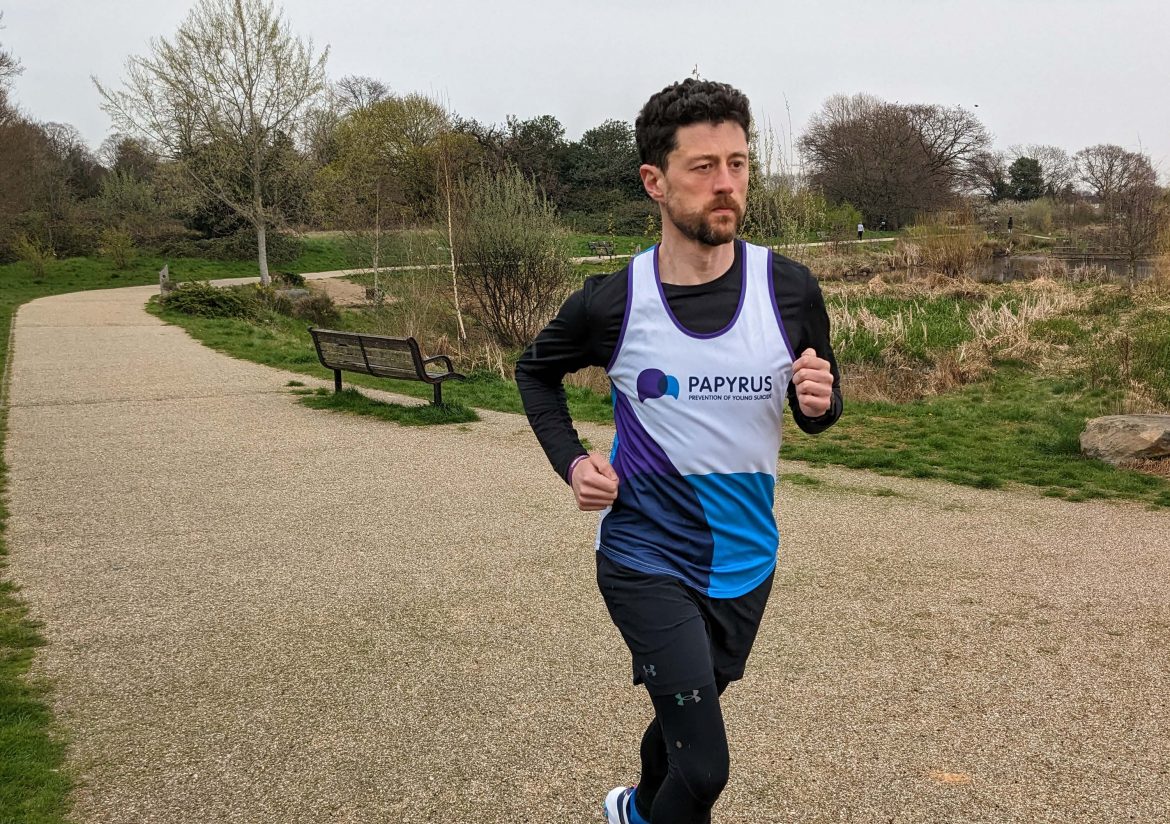It is the day after the London marathon. Almost 50,000 people are recovering from the 26.2-mile journey through the streets of the capital in celebration of positivity, diversity, and inclusion. Among the record number of runners at yesterday’s start line was Ed Franklin, who had another reason for taking up running only five months ago – his sister, Amelia, who took her own life in March 2021.
Amelia was 35 when she died. Seven months earlier she had given birth to her second daughter and “no one even for a second thought she would take her own life,” her brother says. Franklin is running in hope that other families will not face a loss like his by raising money for suicide prevention charity Papyrus.

“Young people are dying every day from suicide, but we don’t talk about it because it’s still a taboo subject. People need to understand it can happen to those you least expect it to, and people need to learn how to talk to others so they feel they can talk back,” says Franklin.
His voice falters as he recalls the months before his sister’s death. While the world faced lockdown Amelia was struggling with post-natal depression, but nobody knew because restrictions limited visits to see her. Franklin is quick to add his sister’s experience is not uncommon. He says there is not enough mental or physical support for women post pregnancy, particularly through the pandemic.
Studies released by Maternal Mental Health Alliance found suicide is the leading cause of a mother’s death in the first year after giving birth. The NHS says anyone that thinks they are experiencing post-natal depression should get help as soon as possible because symptoms can last for months or get worse. It adds it can also affect fathers and partners.
“She was thinking she was a terrible mum but actually she was the most incredible mum. Everyone would describe her as funny, warm, and the person they went to when they were having a difficult time,” Franklin says. “What’s really sad is she didn’t feel she could go to anyone when she was having a difficult time.”
Fundraising for Papyrus
Papyrus was set up in 1977 by bereaved parents who had lost children to suicide and has become the leading youth suicide prevention charity in the UK. It delivers prevention education and training packages to thousands of people each year with the aim to create “suicide-safe communities.”
The well-known campaign for suicide prevention – Three Dads Walking – was also in support of Papyrus. In 2021, three fathers of women who committed suicide walked 300 miles and raised £800,000 for the charity.
Franklin said: “Papyrus do a huge amount of good work and they don’t have huge costs. They’ve got no one on big chief executive salaries. They’re a small team and a fantastic charity.”
He aimed to raise £5,000 but increased the goal to £10,000 when the original target was hit last month. Franklin has been “blown away” by the generosity of friends and people he has never met. It is only one day after the marathon and Franklin has beaten the new target. Donations currently stand at £10,782 on his JustGiving page.
Franklin works at the Kingston based company Wolters Kluwer and praises his colleagues for their support. He has only worked there since January and admits he has not met everyone at the company but many still thank him for sharing his sister’s story.
“Someone donated £450 anonymously which is incredible. It’s amazing people who don’t know me and didn’t know my sister have been touched by her story and want to help young people who are struggling,” he says.
Training to spot warning signs
According to the American Journal of Obstetrics and Gynaecology, mental health conditions and substance use disorders are common circumstances preceding suicide but Franklin hopes to highlight this is not always the case. He says this is why the training Papyrus provides is so important to teach people to spot the warning signs.
The CPD certified training is a 90-minute session that provides information about the warning signs of suicide and teaches how to address the conversation. It is designed to benefit a range of participants including healthcare professionals, teachers, parents, and students.
“One of the most satisfying things was an ex-colleague telling me how the training had been incredibly beneficial when her sister was having a suicidal episode. She had been able to identify the problems, approached it differently and helped her sister through it,” he says.
The mental and physical benefits of running
Franklin’s supporters were cheering him on at various points in the course. His partner, father, and Amelia’s friends were among them as he finished the marathon in four hours 48 minutes. It is clear he completed the marathon to help other people and seems he shares his sister’s “generous and caring” nature.

Photo: Sarah Burns
It is undeniable the training he has undertaken has benefitted his own physical and mental health. He says he feels fitter than ever and mentally stronger than he has in a long time.
“I will 100 per cent carry on running as long as I’m able to, but I won’t commit to another marathon until I see how this one goes,” he jokes.
He has hit two fundraising targets but stressed the most important thing to him is raising awareness of suicide. He also set up the website Remembering Amelia to share her story and direct people to the training. “If I can get people to do the training, to talk openly with people who might be struggling,” he says, “it could mean a family doesn’t go through what mine has and someone’s kids don’t have to grow up without a mum.”
In the UK, anyone feeling emotionally distressed or suicidal can contact Samaritans by calling 116 123 or emailing jo@samaritans.org
Further information about Papyrus can be found on the organisation’s website.





